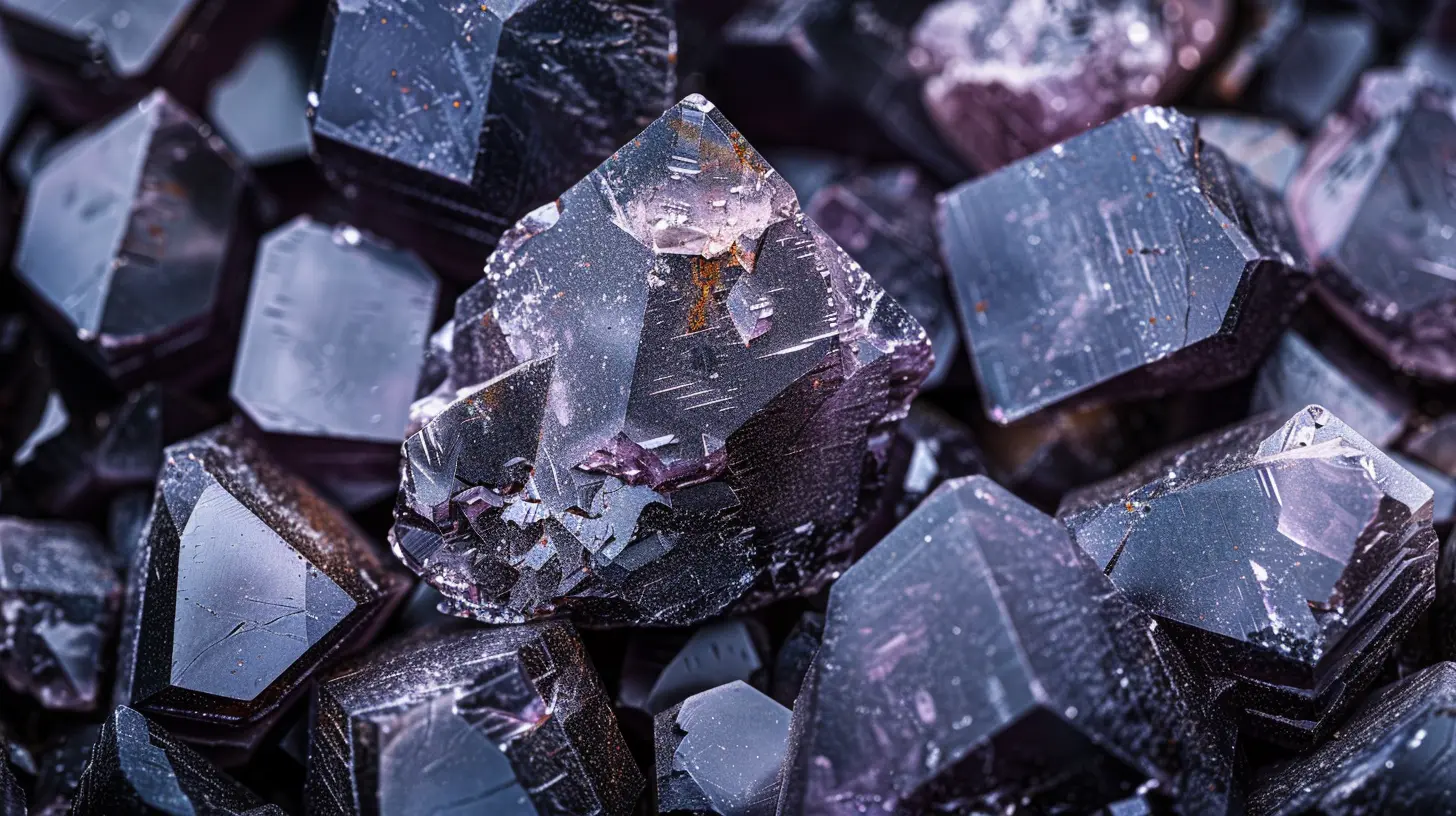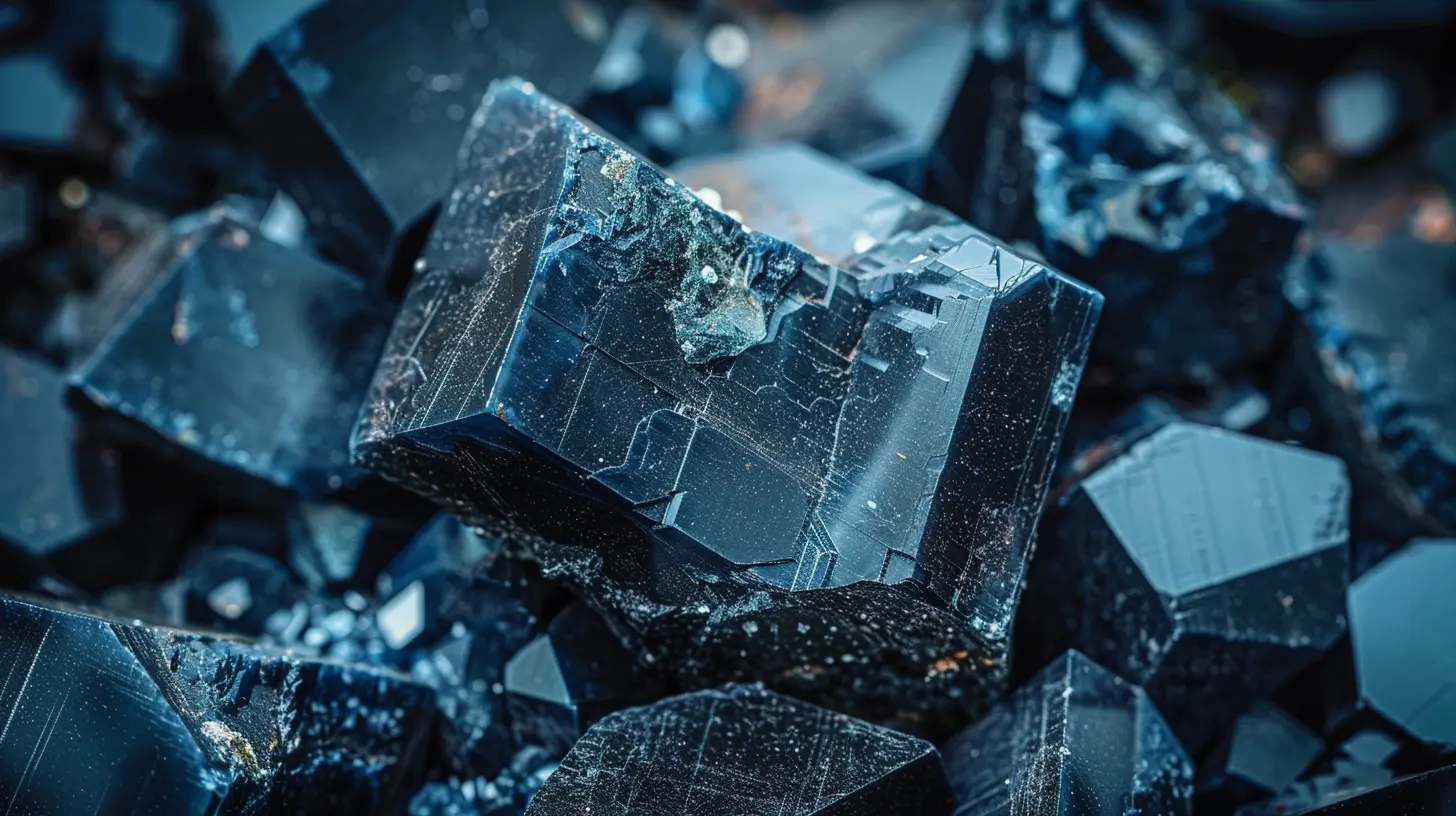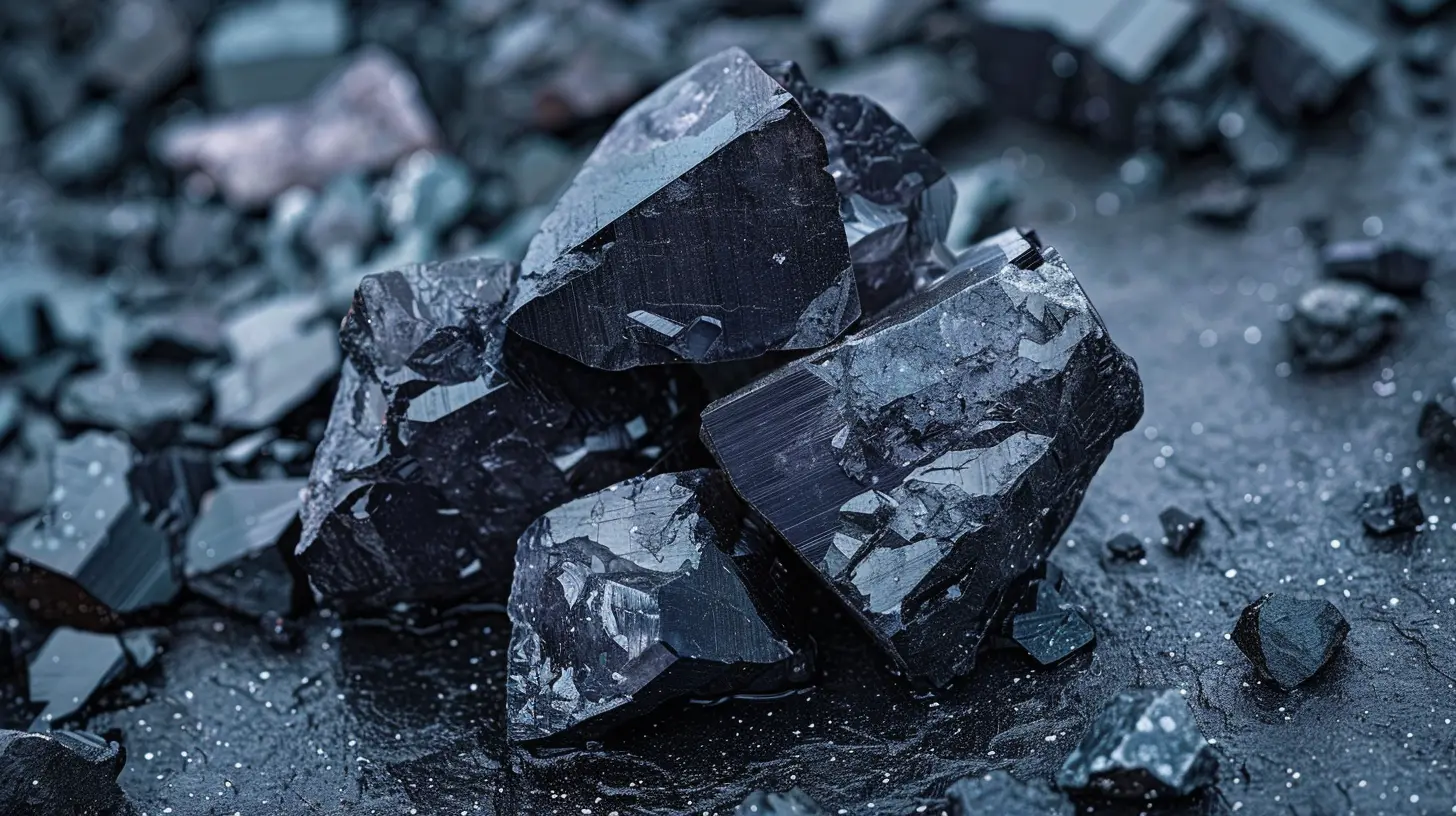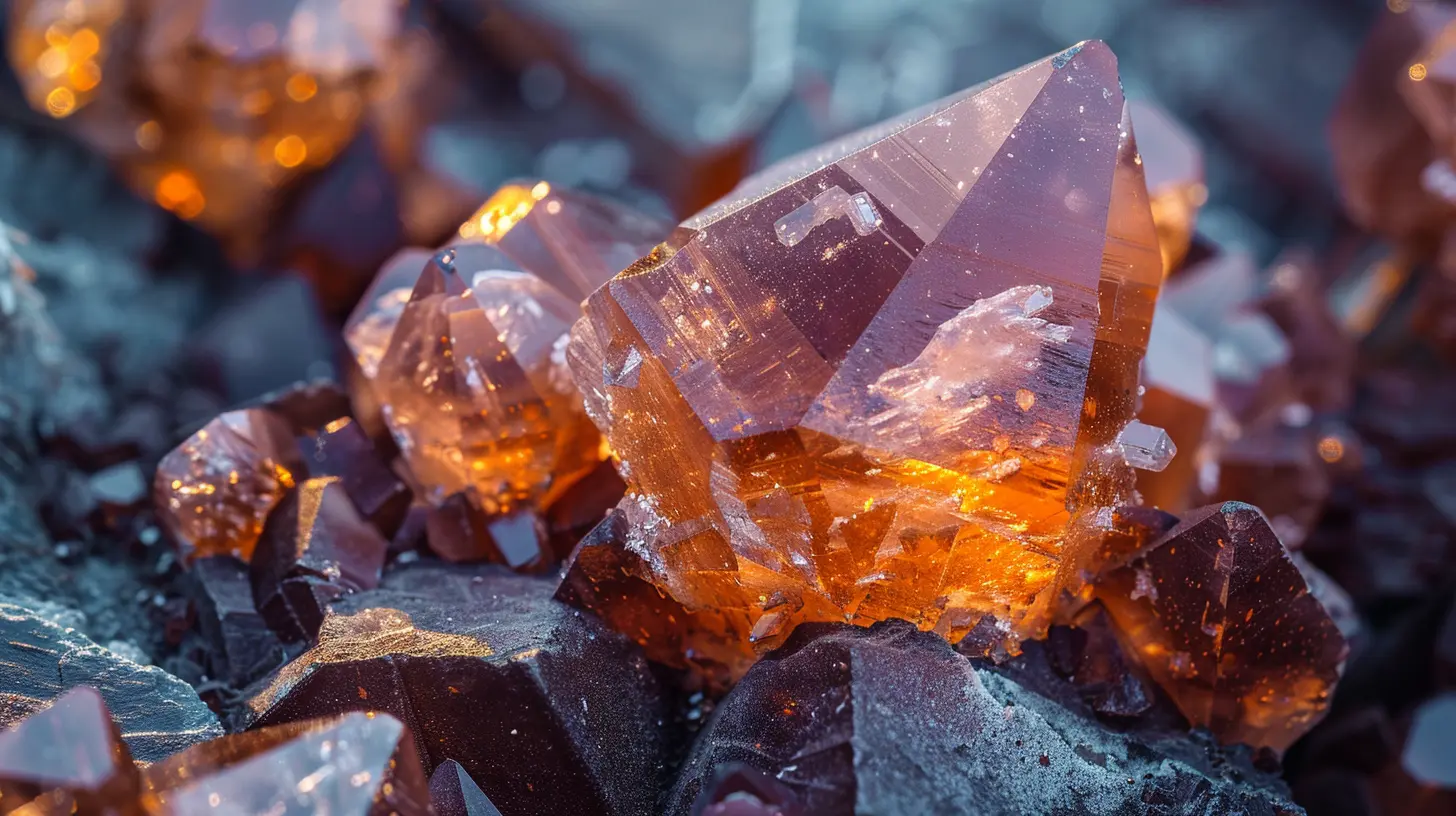Manganese: A Lesser-Known Mineral with Major Benefits
7 June 2025
When we talk about essential minerals, we often hear about iron, calcium, and magnesium. But what about manganese? This underrated mineral rarely gets the spotlight, yet it plays a crucial role in our overall health. From supporting brain function to strengthening bones, manganese deserves a permanent spot in your diet.
In this article, we'll dive deep into what manganese is, why it matters, the best food sources, and the incredible benefits it offers. Buckle up because this powerhouse mineral is about to change the way you think about nutrition! 
What is Manganese?
Manganese is a trace mineral, meaning your body only needs small amounts of it — but don't let that fool you. Even in tiny doses, manganese is essential for various physiological processes. It's involved in metabolism, bone formation, antioxidant defense, and even cognitive function.Your body doesn’t produce manganese on its own, so you have to get it from your diet. Thankfully, it's found in several foods, and ensuring you get enough can have a massive impact on your health.

The Major Health Benefits of Manganese
1. Supports Bone Health
If you're thinking about bone health, calcium and vitamin D might come to mind first. But did you know manganese plays a critical role, too? Manganese helps form strong bones and supports the enzymes involved in bone metabolism. Studies suggest that a deficiency in this mineral can lead to weakened bones and increase the risk of fractures.For those dealing with osteoporosis or joint pain, boosting your manganese intake could be a game-changer. It works alongside calcium, zinc, and copper to maintain bone density and keep your skeletal system strong.
2. A Natural Antioxidant Powerhouse
Oxidative stress is one of the leading culprits behind aging and chronic diseases. Manganese helps your body fight oxidative damage by being a key component of superoxide dismutase (SOD), a powerful antioxidant enzyme.Think of SOD as your body's cleanup crew. It neutralizes harmful free radicals, reducing inflammation and lowering the risk of conditions like heart disease, diabetes, and even cancer. If longevity is on your radar, manganese is a mineral you don’t want to overlook!
3. Boosts Metabolism and Energy Production
Feeling sluggish? Your metabolism might need a boost — and manganese can help. This mineral plays a vital role in the breakdown of carbohydrates, proteins, and fats, ensuring your body efficiently converts food into usable energy.Simply put, without manganese, your body struggles to extract the full nutritional value from what you eat. So if you want to keep your energy levels stable throughout the day, make sure manganese-rich foods are on your plate.
4. Enhances Brain Function and Cognitive Health
Your brain needs a variety of nutrients to function optimally, and manganese is one of them. This mineral supports neurotransmitter activity and helps protect the brain from oxidative damage. Research suggests that manganese may even play a role in preventing neurodegenerative diseases like Alzheimer's and Parkinson's.Think of manganese as brain fuel. It keeps your mental clarity sharp, reduces brain fog, and may even enhance memory retention. If you're looking to keep your cognitive abilities in top shape, manganese is a must-have in your diet.
5. Promotes Wound Healing and Tissue Repair
Got a cut or bruise? Your body needs manganese to kickstart the healing process. This mineral supports collagen production, which is crucial for repairing skin, tissues, and even cartilage.Manganese also works alongside vitamin K in helping your blood clot properly, preventing excessive bleeding and ensuring your wounds heal faster.
6. Regulates Blood Sugar Levels
If you’re keeping an eye on your blood sugar, manganese might be your new best friend. It plays a role in insulin regulation, helping to keep glucose levels stable. Research indicates that manganese deficiency could increase the risk of diabetes since the mineral helps pancreatic cells function properly.By ensuring you’re getting enough manganese, you can support insulin activity and reduce the risk of developing blood sugar-related disorders.

Best Food Sources of Manganese
So where can you get this essential mineral? Luckily, manganese is found in a variety of delicious and nutritious foods.Manganese-Rich Foods:
- Nuts and seeds – Almonds, walnuts, pecans, sunflower seeds, and flaxseeds- Whole grains – Brown rice, quinoa, oats, and whole wheat
- Leafy greens – Spinach, kale, and Swiss chard
- Legumes – Lentils, chickpeas, and black beans
- Fruits – Pineapple, raspberries, and blueberries
- Dark chocolate – A tasty treat that also packs a manganese punch!
Adding these foods to your diet is an easy way to maintain optimal levels of manganese and reap its benefits.

How Much Manganese Do You Need?
The recommended daily intake (RDI) for manganese varies by age and gender:- Men: 2.3 mg per day
- Women: 1.8 mg per day
- Pregnant women: 2.0 mg per day
- Breastfeeding women: 2.6 mg per day
Since manganese is found in a variety of plant-based foods, most people get enough from their diet. But if you have a deficiency, supplementation might be necessary—though it’s always best to consult a healthcare professional before taking any new supplement.
Can You Get Too Much Manganese?
While manganese is essential for health, too much of it can be harmful. Excessive manganese intake—usually from contaminated water or overuse of supplements—can lead to neurological issues, similar to symptoms of Parkinson’s disease.Stick to natural food sources to meet your manganese needs, and avoid high-dose supplements unless advised by a doctor.
Should You Consider Manganese Supplements?
For most people, a balanced diet is enough to provide sufficient manganese. However, certain conditions—such as poor absorption due to gut disorders—may warrant supplementation.Signs of manganese deficiency can include:
- Weak bones
- Fatigue
- Poor wound healing
- Joint pain
- Mood changes
If you're experiencing these symptoms and suspect a deficiency, a blood test can determine your manganese levels. Your doctor can then recommend dietary adjustments or supplements if necessary.
Final Thoughts
Manganese might not be as famous as other minerals, but it’s just as vital for maintaining good health. From supporting strong bones and boosting metabolism to protecting your brain and regulating blood sugar, this trace mineral does it all.Incorporating manganese-rich foods into your diet is an easy way to benefit from its incredible properties. So the next time you’re planning your meals, give manganese the attention it deserves—it’s a small nutrient with massive benefits!
all images in this post were generated using AI tools
Category:
MineralsAuthor:

Arthur McKeever
Discussion
rate this article
2 comments
Lilith Marks
Manganese boosts metabolism and supports bone health!
June 14, 2025 at 3:16 PM

Arthur McKeever
Absolutely! Manganese plays a crucial role in metabolic processes and is vital for bone health. Its benefits extend beyond the basics, making it an important mineral to include in your diet.
Emmeline Kim
Great article! It's fascinating how a lesser-known mineral like manganese can have such a significant impact on our health. I love learning about these hidden gems in nutrition. Definitely going to be more mindful of including manganese-rich foods in my diet!
June 12, 2025 at 3:00 AM

Arthur McKeever
Thank you for your kind words! I'm glad you found the article insightful. Manganese truly is a hidden gem in nutrition!


